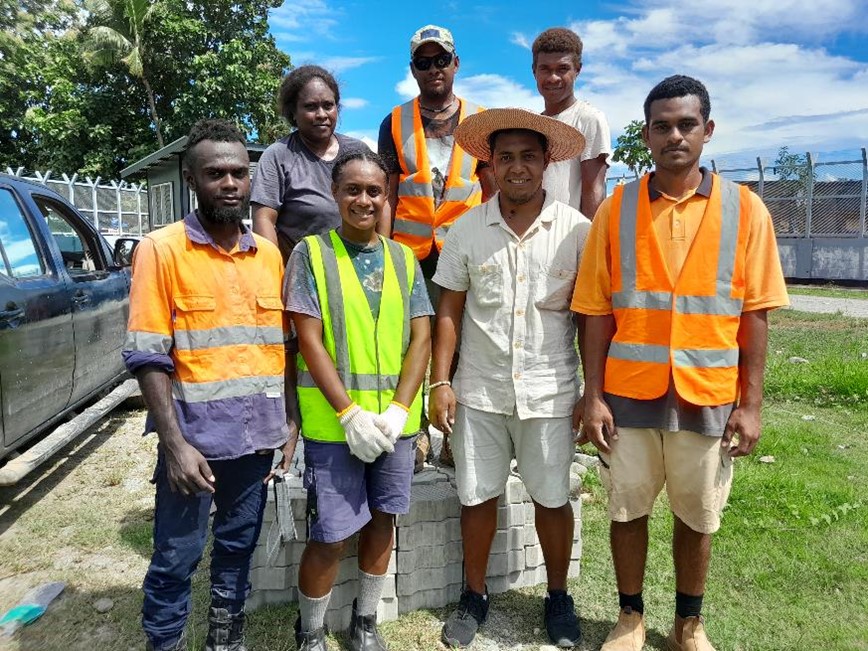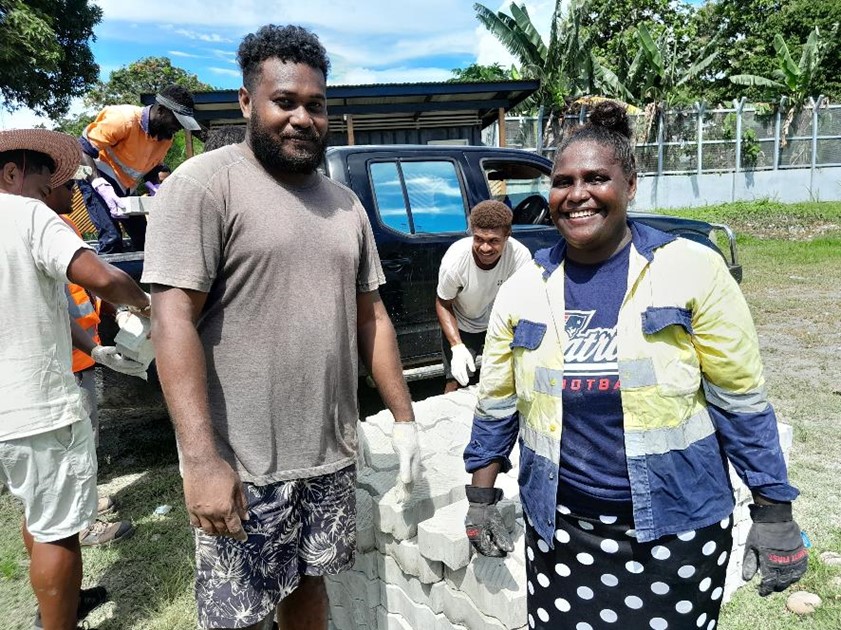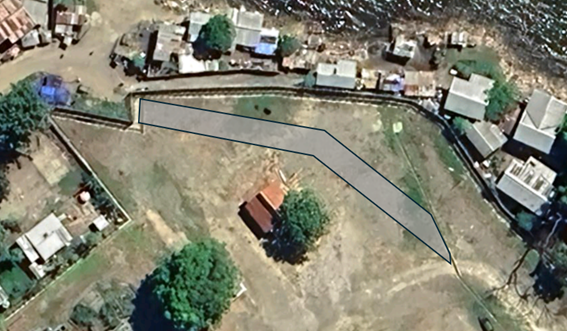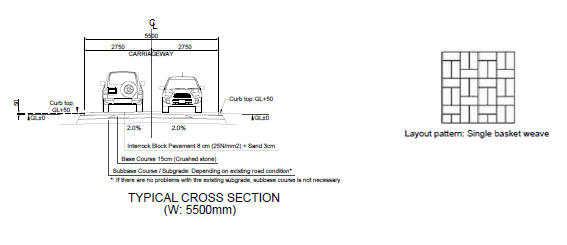Construction of “Interlocking Blocks Pavement” starts. Interested participants are welcome to join us at MID Yard!

MID and SINU participants
At the MID Yard in Honiara, the project staff had finished producing thirteen thousand interlocking blocks by last October. This endeavour is a part of activities of the Interlocking Block Pavement (IBP) technical cooperation project, supported by the Japan International Cooperation Agency (JICA) and carried out by the Ministry of Infrastructure Development (MID). The project aims to introduce IBP as a standard road pavement method in Solomon Islands. We will start constructing the road of interlocking blocks pavement inside the yard on the week of 25th March and complete it by mid-April.

MID members Transfer interlocking blocks along the road
The road, which is 5.5 meters wide, starts from the north gate of MID yard and goes toward the vehicle testing station for about 70 meters, as shown on the map below.

We can choose a layout pattern of interlocking blocks and a colour variation considering the safety, design, and slogans to be displayed.
Section of the road and typical details are shown below.

The construction procedure consists of the following two steps.
First, we will build a road base with a compacted crusher run, which transfers vehicle loads to the ground. This procedure is the same as for asphalt or concrete-paved roads.
Second, we will make the sand bed and cover the surface with the 13,000 blocks mentioned above, which participants will lay one by one.
Finally, durable and exchangeable interlocking block pavement is accomplished. It is also nice-looking.
Interested Participants Wanted!!!
IBP has the following features.
1. Blocks can be manufactured using simple equipment and techniques, and construction can be done manually without heavy machinery.
2. If the blocks have cracks, fall-off, potholes, or other defects, they can be easily patchworked by removing them in that spot only, repairing the roadbed, and then relaying the blocks.
This means that even without specialized knowledge or experience, local workers can manage continuous dissemination and maintenance.
The IBP Project aims to transfer IBP technology to and help build capacity for local engineers. The project team hopes that many interested participants will participate in this activity.
If interested, please contact Mr Ishmael Alulu (ialulu@mid.gov.sb) at MID Yard.





scroll